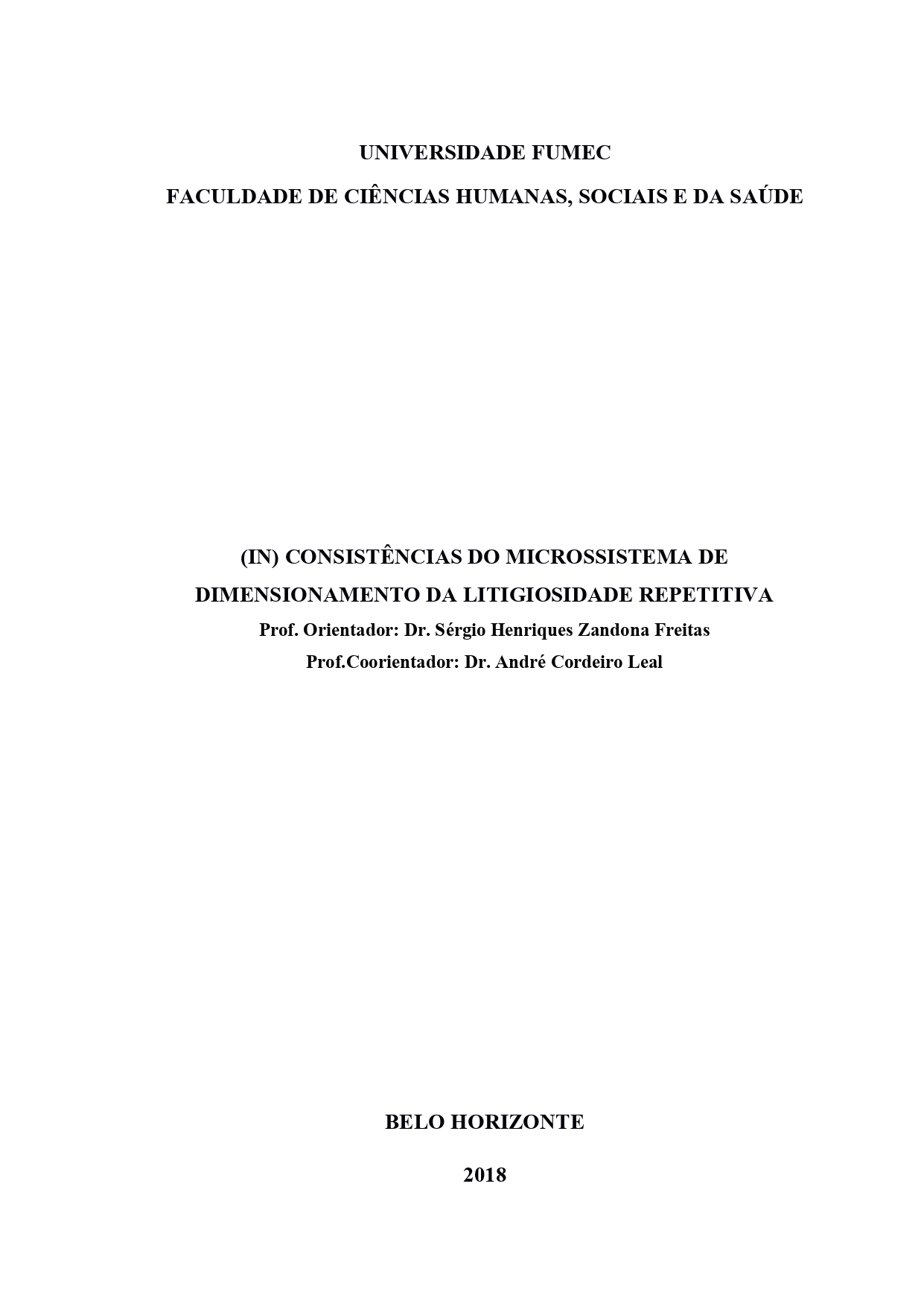(In)consistências do microssistema de dimensionamento da litigiosidade repetitiva

Visualizar/
Data
2018Autor
Ayres, Ana Luíza Zakur
xmlui.mirage2.itemSummaryView.MetaData
Mostrar registro completoResumo
O sistema jurídico brasileiro é fundamentado na Civil Law, confirmado no art. 5º, II, da
CRFB/88, todavia, ao longo dos últimos anos, é possível perceber que os precedentes judiciais
vêm sendo adotados pela legislação com o objetivo de assegurar maior segurança jurídica aos
jurisdicionados e maior celeridade ao trâmite processual. Esta intenção foi analisada com
maior precisão, tendo em vista que a partir do século XX, o Judiciário brasileiro começou a
lidar com a explosão de litigiosidade e com o surgimento de megaconflitos. Porém,
insuficientes foram as alterações legislativas, tendo a maior inovação apresentada na Lei n°
13.105/15 – Código de Processo Civil de 2015, em que é possível perceber a intenção do
legislador de aproveitar os fundamentos do stare decisis e Commom Law com o objetivo de
privilegiar a busca pela uniformização e estabilização da jurisprudência e de garantir a
efetividade do processo, notadamente das garantias constitucionais. Desta forma, o objetivo
deste artigo é tratar dos dois importantes institutos previstos nesta norma, quais sejam: o
Incidente de Resolução de Demanda Repetitiva e o Instituto de Assunção de Competência,
bem como, suas inconsistências na seara prática processual. Utilizar-se-á o método dedutivo
pela pesquisa bibliográfica. The Brazilian legal system is based on the Civil Law, confirmed in art. However, over the last
few years, it is possible to perceive that judicial precedents have been adopted by legislation
with the objective of ensuring greater juridical security to the courts and speeding up the
procedural process. This intention was analyzed with greater precision, considering that from
the twentieth century, the Brazilian Judiciary began to deal with the explosion of litigiousness
and with the emergence of megaconflitos. However, legislative changes were insufficient,
with the greatest innovation presented in the Law n° 13.105/15 - Code of Civil Procedure of
2015, in which it is possible to perceive the intention of the legislator to take advantage of the
fundamentals of stare decisis and Commom Law with the objective of favoring the search for
the standardization and stabilization of jurisprudence and guaranteeing the effectiveness of the
process, especially the constitutional guarantees. In this way, the purpose of this article is to
deal with the two important institutes provided for in this norm, namely: the Incident of
Resolution of Repetitive Demand and the Institute of Assumption of Competence, as well as
their inconsistencies in the practical practice. The deductive method will be used for
bibliographic research.
